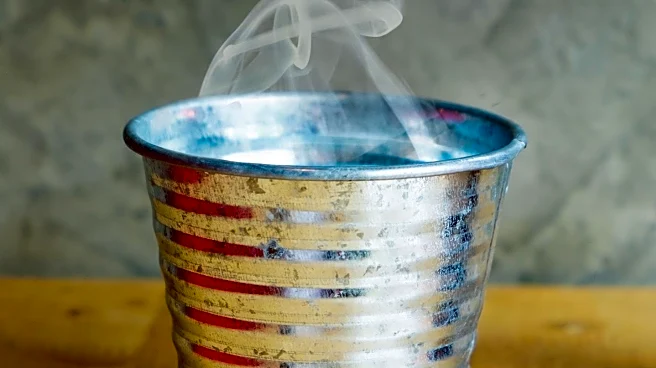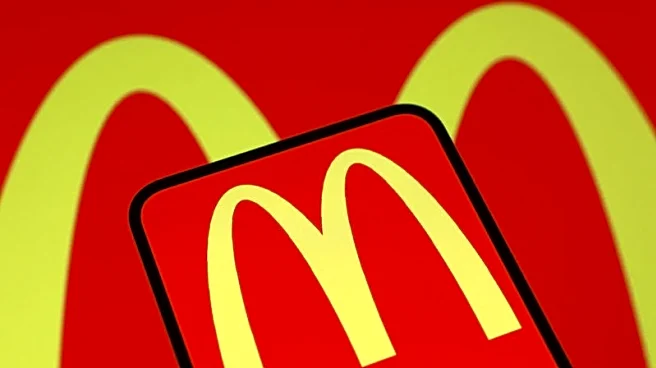What is the story about?
What's Happening?
Researchers from Guangzhou Medical University and Jinan University in China have discovered that boiling water can effectively remove up to 90% of microplastics from mineral-rich, hard tap waters. The study, published in the journal Environmental Science & Technology Letters, found that boiling causes naturally occurring minerals like calcium carbonate to form crystals that trap and precipitate microplastic particles. This method was tested by spiking tap water with common plastics such as polystyrene, polyethylene, and polypropylene, and observing the formation of mineral crystals during boiling. The effectiveness of this method is contingent on the water's mineral content, with hard water showing significant reductions in microplastics, while soft water showed only a 25% reduction.
Why It's Important?
The presence of microplastics in water sources is a growing concern due to their potential health impacts. This study offers a simple and cost-effective method to reduce microplastic exposure through drinking water, which could have significant implications for public health. By reducing the amount of microplastics ingested, this method could alleviate some of the health risks associated with these particles. The findings are particularly relevant for regions with hard water, providing a practical solution to a pervasive environmental issue. This research also highlights the need for further studies to explore the effectiveness of this method across different water sources and conditions.
What's Next?
Further research is needed to validate these findings across a broader range of water sources and to explore the long-term health benefits of reduced microplastic exposure. Additionally, public health guidelines may need to be updated to incorporate boiling as a recommended practice for reducing microplastics in drinking water. This could lead to increased public awareness and adoption of this method, potentially influencing water treatment practices on a larger scale.
















